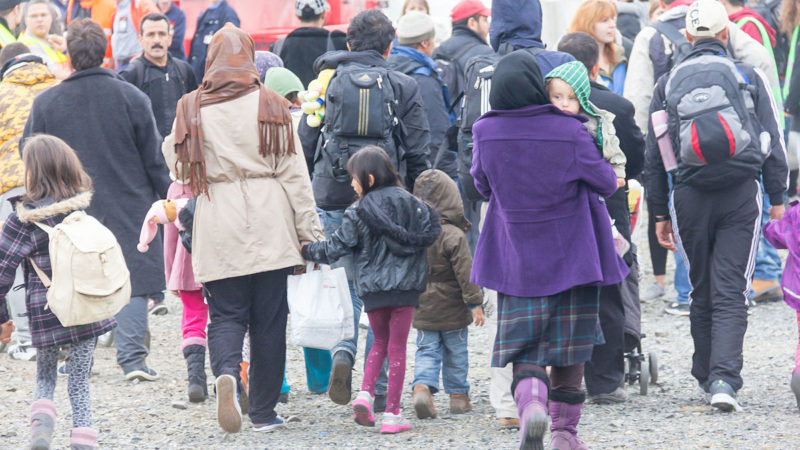For the wellbeing of everyone, it’s vital that asylum seekers receive the protection and welfare they need.

Inadequate government support is leaving asylum seekers uniquely exposed to coronavirus and its impact.
The accommodation provided to asylum seekers is riddled with problems, and frequently leads to both misery and ill-health. One such problem is overcrowding. A study by Refugee Rights Europe revealed some female asylum seekers having to stay in rooms containing up to eight other people.
Not only does living in such cramped conditions stand in the way of a healthy and happy existence, it also makes it impossible to self-isolate. As a result, many of those living in asylum accommodation are unable to protect themselves from the spread of the virus.
An open letter from migrant organisations has urged local authorities to ensure that everyone, regardless of their immigration status, has access to self-contained accommodation. For asylum seekers to be adequately safeguarded from the pandemic, it is crucial that this demand is implemented.
The government’s official guidance on coronavirus states that all shared spaces should be well-ventilated, yet poor ventilation is a common occurrence within asylum housing. In one instance, accommodation inspectors found that poor ventilation and damp conditions had caused the ill-health of a child. Children with asthma were staying in houses with severe damp yet were not considered for relocation.
As COVID-19 is a respiratory disease, these conditions in asylum seeker accommodation should sound alarm bells.
However, barriers to healthcare often prevent those seeking asylum from accessing the treatment they need. One such barrier is the fear that seeking medical assistance will result in detention or deportation.
The Conservatives’ ‘Hostile Environment’ introduced data-sharing between NHS staff and the Home Office as a way to identify undocumented migrants. This has led to many of those in need of treatment being too afraid to access it, due in no small part to the overarching threat of punishment.
In the words of one female asylum seeker in Swansea: “We knew the NHS was linked and share data with the Home Office, so we were afraid we’d be sent home, deported.”
In the middle of a global pandemic, it is vital that all people have equal access to treatment. To achieve this, an alliance of campaigners have come together to demand an ‘immediate data firewall’ between the NHS and immigration enforcement.
The costs involved with accessing healthcare can also act as a barrier. Asylum accommodation is often situated a considerable distance from the nearest medical facility, necessitating the use of public transport.
With the current financial support rate for asylum seekers a paltry £37.75 per week, such journeys are simply unaffordable. One pregnant asylum seeker in London told the EHRC that it costs ‘nearly £20 to travel to the hospital’, leaving her cut off from vital assistance.
Inadequate financial support also leaves asylum seekers vulnerable to the impact of COVID-19 in other ways. The British Red Cross found that many asylum seekers experience hunger ‘without being able to satisfy it’ on a weekly basis.
With even the basics often unaffordable, the work of charities plays a key role in counteracting food poverty. Free cooked meals are provided at day centres, yet these centres have now closed under social distancing measures, depriving asylum seekers of an essential lifeline.
Everything possible must be done to ensure they are provided for. In such testing times, it is imperative that no-one gets left behind.
Cameron Boyle is a political correspondent for the Immigration Advice Service, an organisation of immigration solicitors in the UK and Ireland.
Left Foot Forward doesn't have the backing of big business or billionaires. We rely on the kind and generous support of ordinary people like you.
You can support hard-hitting journalism that holds the right to account, provides a forum for debate among progressives, and covers the stories the rest of the media ignore. Donate today.



